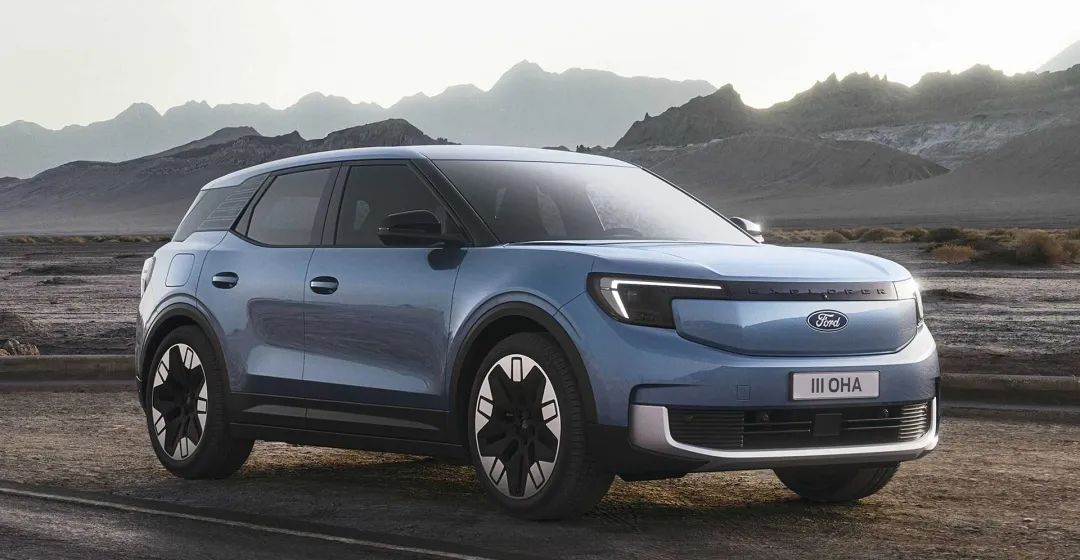Author: Da Yan
Recently, Ford’s first electric vehicle based on the Volkswagen MEB platform – the Explorer EV – has been unveiled. At the end of 2022, Ford announced that it will launch seven electric vehicles in the European market in 2024, two of which will be based on Volkswagen’s MEB platform, and the Explorer EV is one of them.

Same Platform, Different Style
For multinational automakers like Ford, it is not difficult to work on an existing platform. After all, from the three-electric system to the entire vehicle’s electronic and electrical architecture, everything has already been finalized. Ford has very limited space for adjustment, not much more than tweaking the styling.
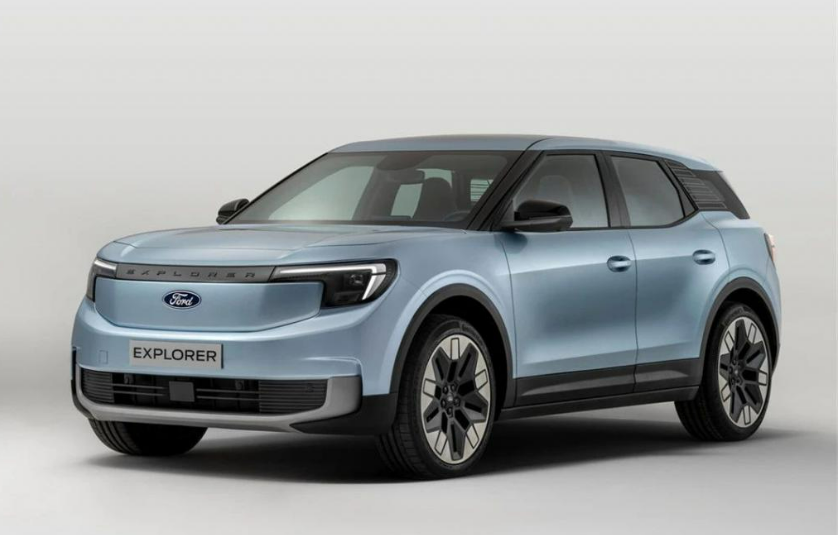
As for power, according to the data of Volkswagen’s MEB platform, the maximum power of the Explorer EV’s dual motors will exceed 300 horsepower. In terms of range, the Explorer EV is expected to be equipped with two types of batteries: 58 kWh and 77 kWh, with a maximum range of over 500 kilometers. At the same time, the Explorer EV can also support fast charging, with 25 minutes charging from 10% to 80%.
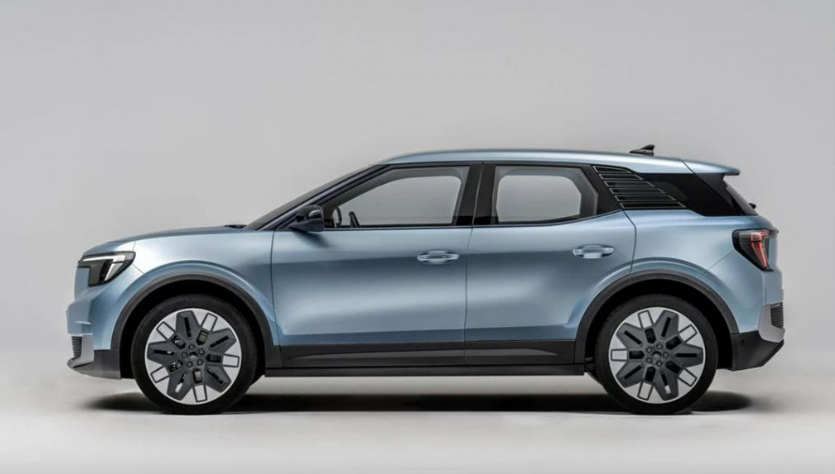
In terms of styling, the Explorer EV borrows heavily from the elements of the currently selling fuel-powered Explorer: the square front face, coupled with a floating roof and “yacht-style” rear window shape, giving this model a certain degree of recognition.
In terms of interior design, whether it is the vertical control screen design or the wrap-around cockpit, the Explorer EV hopes to highlight American luxury and technology to differentiate itself from the Volkswagen ID series of electric vehicles.
Why does Ford need MEB?
For Ford, the arrival of the Explorer EV is a great addition to Ford’s existing electric vehicle matrix. Currently, Ford only has three pure electric models: Mustang Mach-E, F150 Lightning, and e-Transit. Among them, there is only one passenger car model, the Mustang Mach-E. As Ford’s high-performance sub-brand, the Mustang brand determines that its entry-level price cannot be too low.
The launch of the Explorer EV will help Ford lower the threshold for electric vehicles, which will inevitably further expand its electric vehicle sales and become an important part of its strategy to achieve sales of 600,000 electric vehicles this year.
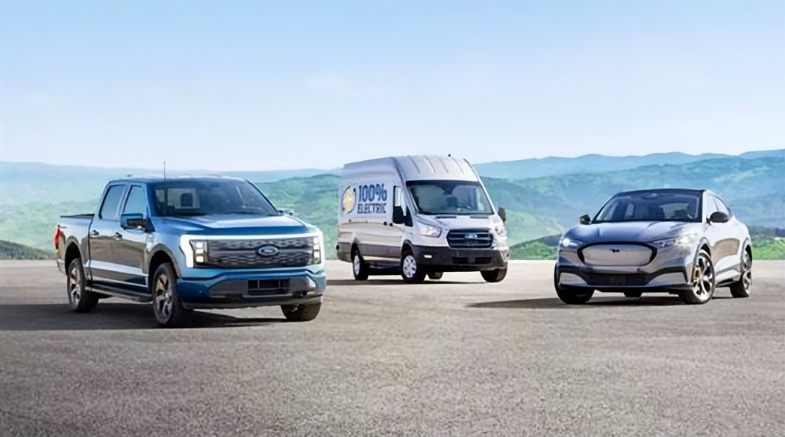
Europe is one of the most radical global auto markets for electric vehicles. Although there are occasional opposing voices, the historical trend of entering into the era of electric vehicles has been difficult to stop in principle. In addition to policy guidance, European consumers have a relatively high acceptance of electric vehicles. In 2022, the sales of new energy vehicles in Europe reached 2.602 million, a year-on-year increase of 14.5%, accounting for 28% of the entire European auto market.
Whether it is to take advantage of the subsequent regulations or to catch the rapid growth of the new energy vehicle market, Ford needs to complete the layout of pure electric vehicle models in the European market as soon as possible. Volkswagen’s MEB is a pure electric vehicle platform whose performance and reliability have been verified, and the cost is relatively controllable. This platform can help Ford fill the gap in the electric vehicle market in the shortest time.
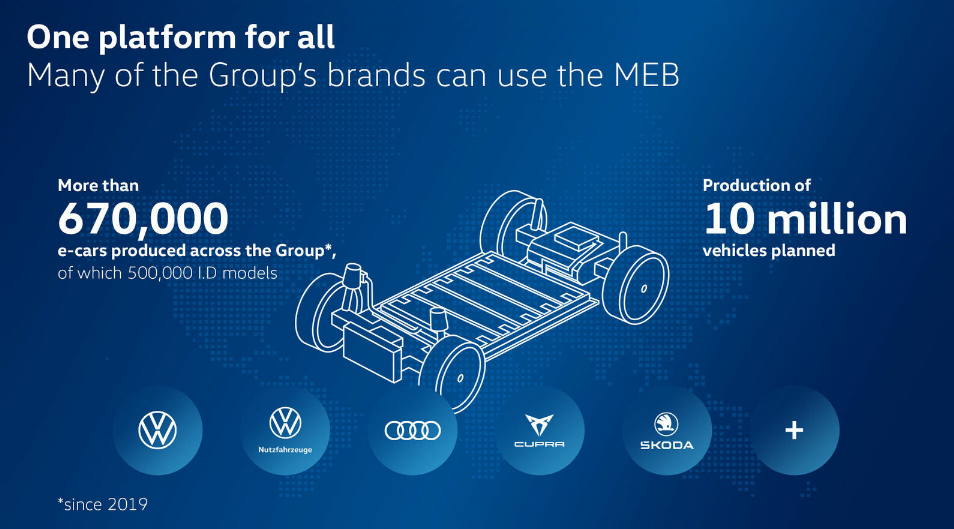 According to the cooperation disclosed by Ford and Volkswagen in 2020, the models built on the MEB platform by Ford will first cover the European market. In the future, if Ford wants to sell the Explorer EV globally, it will need the approval of Volkswagen. However, this does not seem to have a significant impact on Ford’s overall sales of electric vehicles.
According to the cooperation disclosed by Ford and Volkswagen in 2020, the models built on the MEB platform by Ford will first cover the European market. In the future, if Ford wants to sell the Explorer EV globally, it will need the approval of Volkswagen. However, this does not seem to have a significant impact on Ford’s overall sales of electric vehicles.
Simply looking at the Chinese market, there is no absolute advantage in product strength for the MEB platform. Whether it is Tesla or a group of new domestic car companies, they are not inferior to the models on the MEB platform in terms of technology. As for the US market, Ford’s Mustang Mach-E is currently the third best-selling model, second only to the Tesla Model Y/3. With the addition of the F150 Lightning, Ford is in a relatively advantageous position in the North American electric vehicle market.
Therefore, what Ford urgently needs to make up for is its strength in the European pure electric vehicle market. In the current European market, among the MEB platform’s competitors, only Tesla poses a direct threat to Volkswagen’s MEB. The pure electric models previously built by Volkswagen have also given the MEB platform an advantage and a user base. Therefore, for Ford, accelerating the introduction of the Explorer EV in the European market can maximize its benefits.
Volkswagen-Ford Cooperation is Unlikely to Proceed Further
In early 2019, Volkswagen and Ford announced their alliance, which became one of the focuses of global automotive news at the time. In that alliance, Volkswagen authorized Ford to sell electric vehicles on the MEB platform in the European market, which was a highlight of the cooperation between the two sides. Why would Volkswagen be willing to let Ford use its MEB platform? Naturally, this is the result of a series of exchanges of interests and a win-win situation between the two sides.
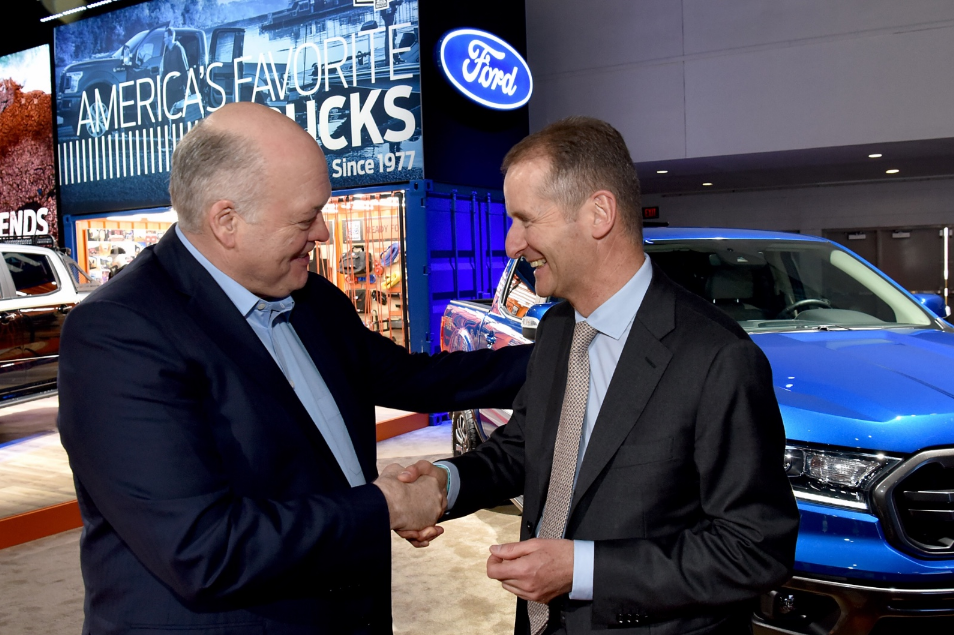
On the one hand, Volkswagen had already developed a very comprehensive platform strategy at that time, which not only included the MEB platform upgrade MEB+, but also the PPE platform for Audi and Porsche, as well as Volkswagen’s SSP, and multiple platforms that were being vigorously developed.On the other hand, Ford also allowed Volkswagen to invest in ARGO AI, helping Volkswagen to fill the gap in L4 autonomous driving research and development. Ford also shared a lot of pickup truck technology with Volkswagen, allowing Volkswagen to have the possibility of increasing sales in the North American market. Of course, Ford’s introduction of the MEB platform will also help Volkswagen further spread the cost of the MEB platform.
However, after Diess left, especially after Volkswagen decided to no longer invest in ARGO AI, the alliance between Ford and Volkswagen gradually faded away, and the space for further cooperation between the two companies is slowly shrinking. Today’s Ford is no longer as helpless in the electric car market as it was when seeking alliances.
Currently, Ford is actively developing its own next-generation pure electric platform, seeking to quickly narrow the gap between its product strength and that of Tesla and other competitors through better three-electric performance and upgraded intelligent connected technology. Although Ford’s 2022 financial report is not impressive, with a net loss of up to $2 billion for the whole year. However, Ford does not need to worry too much. A vast majority of the high losses are due to the sharp drop in the previously invested Rivian stock price and the bankruptcy settlement of ARGO AI. As for the increase in supply chain prices and the cost of frequent recalls, there is also a trend of easing in 2023.
Finally
Nowadays, Ford has already gone all-in on intelligent electric vehicles. Cooperation between transnational automotive giants is never an easy thing. There are too many interests that need to be coordinated behind every project. Since both Volkswagen and Ford have decided to completely transform into pure electric vehicle companies, it is inevitable that they will both rely on self-research in terms of mastering core technology and taking stock price into account.
Therefore, the two MEB pure electric vehicle models under Ford’s name, including the Explorer EV, are likely to be the final honeymoon period for cooperation between Ford and Volkswagen.
This article is a translation by ChatGPT of a Chinese report from 42HOW. If you have any questions about it, please email bd@42how.com.
